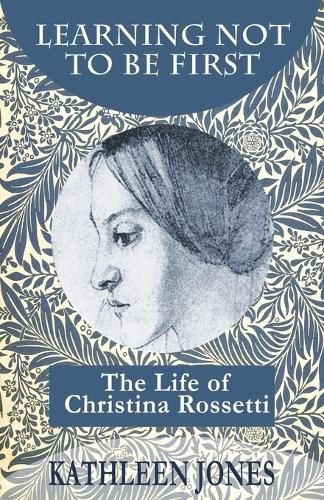Readings Newsletter
Become a Readings Member to make your shopping experience even easier.
Sign in or sign up for free!
You’re not far away from qualifying for FREE standard shipping within Australia
You’ve qualified for FREE standard shipping within Australia
The cart is loading…






This title is printed to order. This book may have been self-published. If so, we cannot guarantee the quality of the content. In the main most books will have gone through the editing process however some may not. We therefore suggest that you be aware of this before ordering this book. If in doubt check either the author or publisher’s details as we are unable to accept any returns unless they are faulty. Please contact us if you have any questions.
Christina was the youngest of the four Rossetti children, born in England to Italian parents. Although she and her brother, the artist Dante Gabriel, were known as the ‘two storms’, Christina’s passionate nature was curbed in a way that her brother’s was not, as she submitted to the social and religious pressures that lay so heavily on Victorian women. Like Elizabeth Barrett Browning, she suffered the tyranny of a loving family. Her sister Maria’s influence was described as ‘a species of police surveillance’, and Christina was always careful never to write anything that would hurt her mother. Often referred to as the ‘High Priestess of Pre-Raphaelitism’ Christina had a genuine lyric gift that could articulate both the joy of being alive and the bitterness of loss. Her desire for poetic excellence and moral excellence were continually in conflict and her poetry betrays the corrosive effect of this struggle. Christina’s deliberate self-effacement, Dante Gabriel’s portrayal of her as the meek virgin and William Rossetti’s subjective role as editor and interpreter of her work have gradually blotted out the passionate lively spirit who wrote ‘Goblin Market’ - one of the most complex and disturbing poems ever written. Kathleen Jones looks at Christina’s life alongside that of other nineteenth-century women writers - notably Emily Bronte, Elizabeth Barrett Browning and Emily Dickinson.
$9.00 standard shipping within Australia
FREE standard shipping within Australia for orders over $100.00
Express & International shipping calculated at checkout
This title is printed to order. This book may have been self-published. If so, we cannot guarantee the quality of the content. In the main most books will have gone through the editing process however some may not. We therefore suggest that you be aware of this before ordering this book. If in doubt check either the author or publisher’s details as we are unable to accept any returns unless they are faulty. Please contact us if you have any questions.
Christina was the youngest of the four Rossetti children, born in England to Italian parents. Although she and her brother, the artist Dante Gabriel, were known as the ‘two storms’, Christina’s passionate nature was curbed in a way that her brother’s was not, as she submitted to the social and religious pressures that lay so heavily on Victorian women. Like Elizabeth Barrett Browning, she suffered the tyranny of a loving family. Her sister Maria’s influence was described as ‘a species of police surveillance’, and Christina was always careful never to write anything that would hurt her mother. Often referred to as the ‘High Priestess of Pre-Raphaelitism’ Christina had a genuine lyric gift that could articulate both the joy of being alive and the bitterness of loss. Her desire for poetic excellence and moral excellence were continually in conflict and her poetry betrays the corrosive effect of this struggle. Christina’s deliberate self-effacement, Dante Gabriel’s portrayal of her as the meek virgin and William Rossetti’s subjective role as editor and interpreter of her work have gradually blotted out the passionate lively spirit who wrote ‘Goblin Market’ - one of the most complex and disturbing poems ever written. Kathleen Jones looks at Christina’s life alongside that of other nineteenth-century women writers - notably Emily Bronte, Elizabeth Barrett Browning and Emily Dickinson.